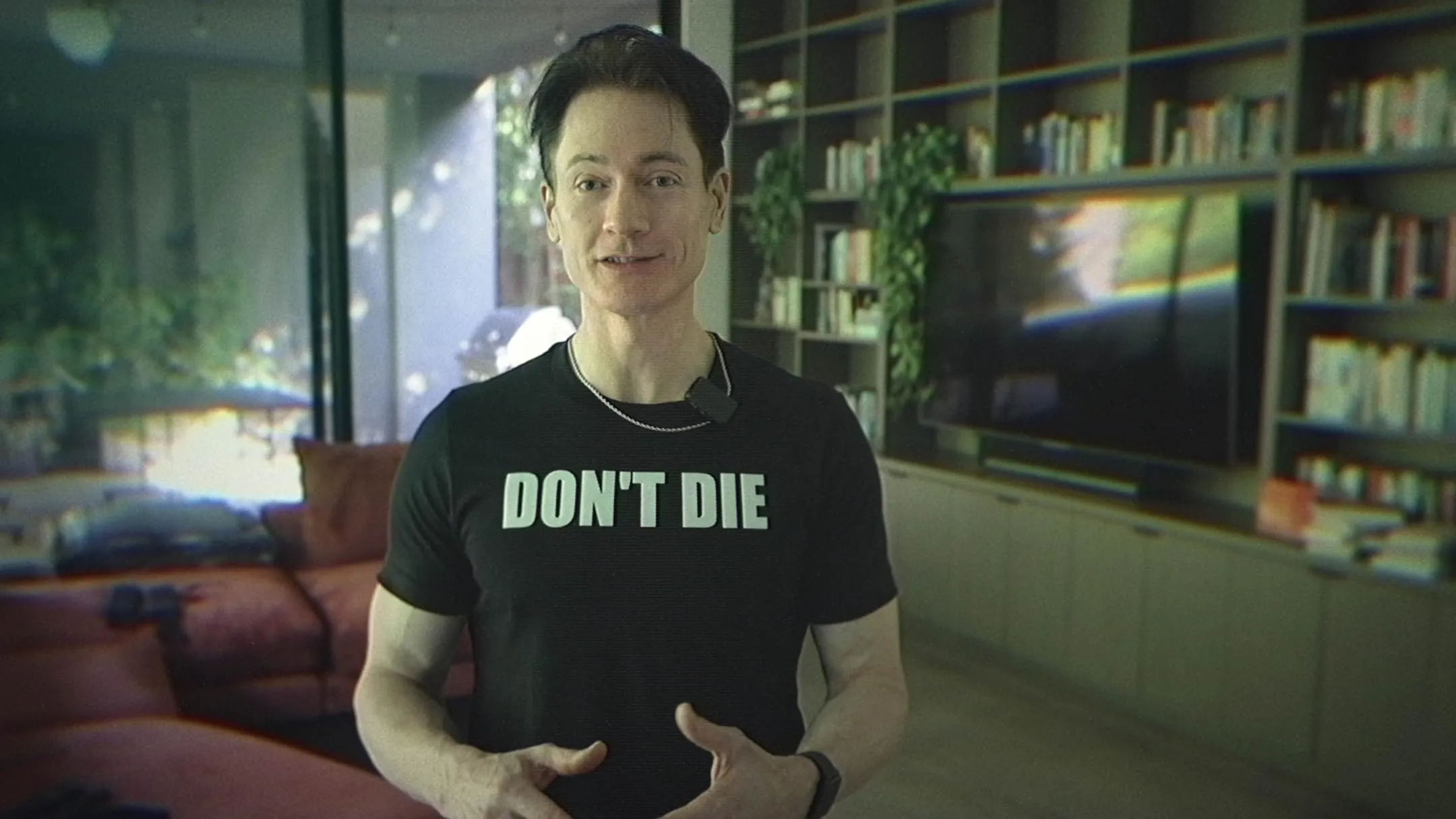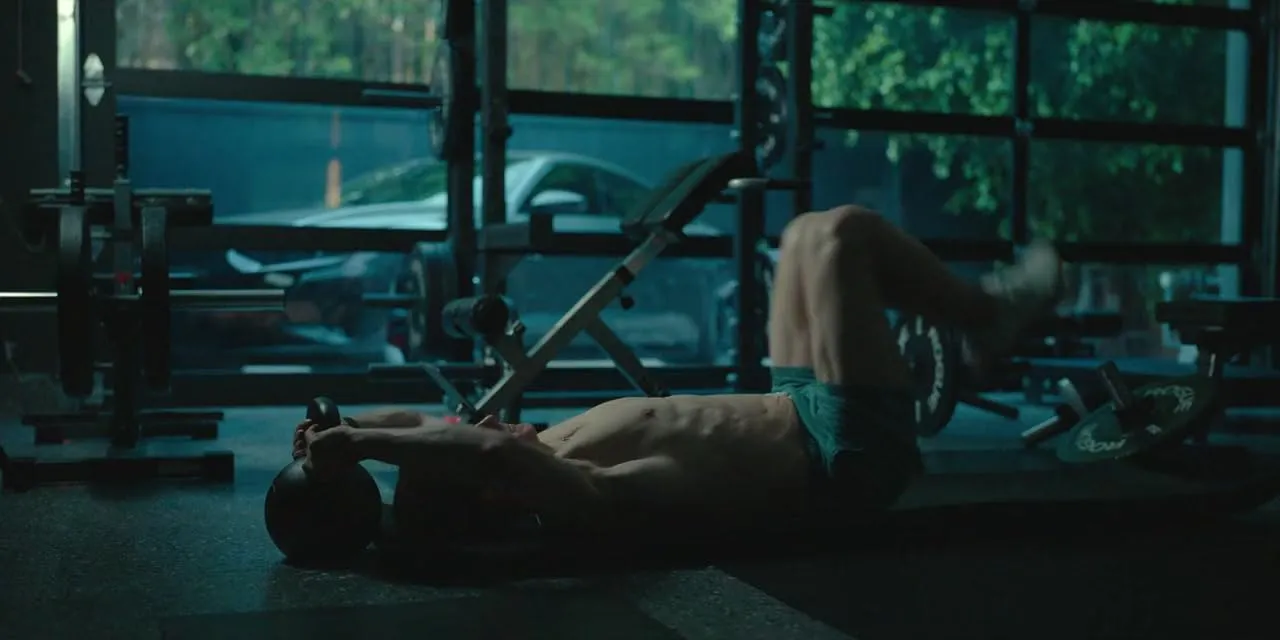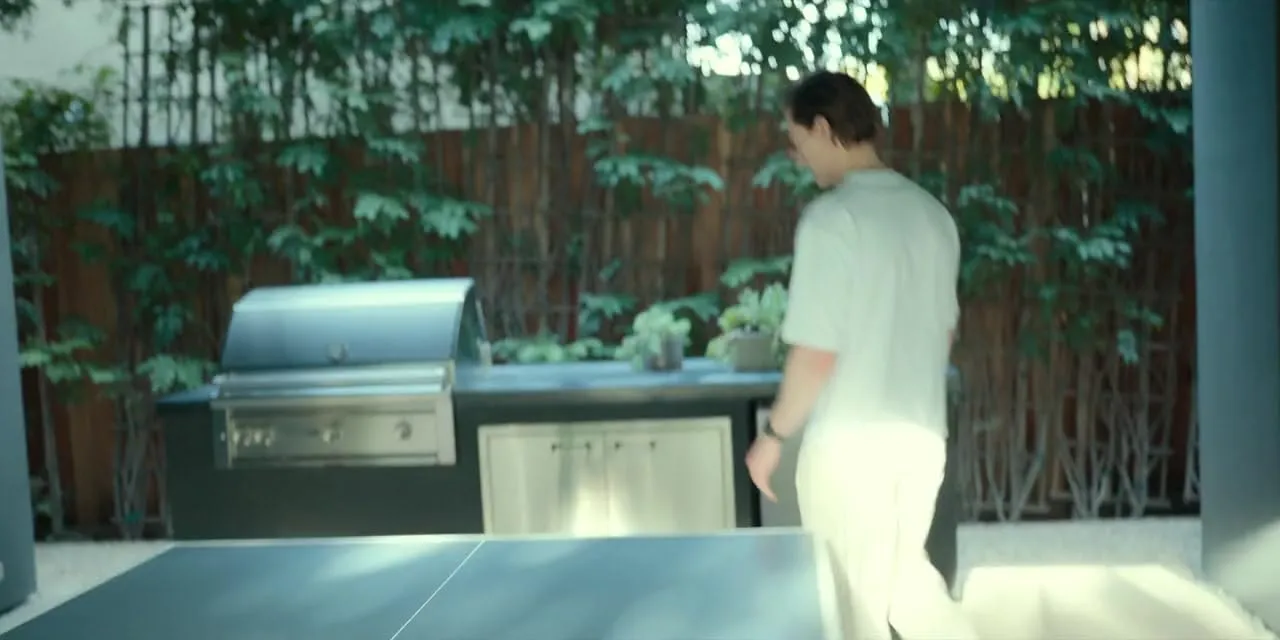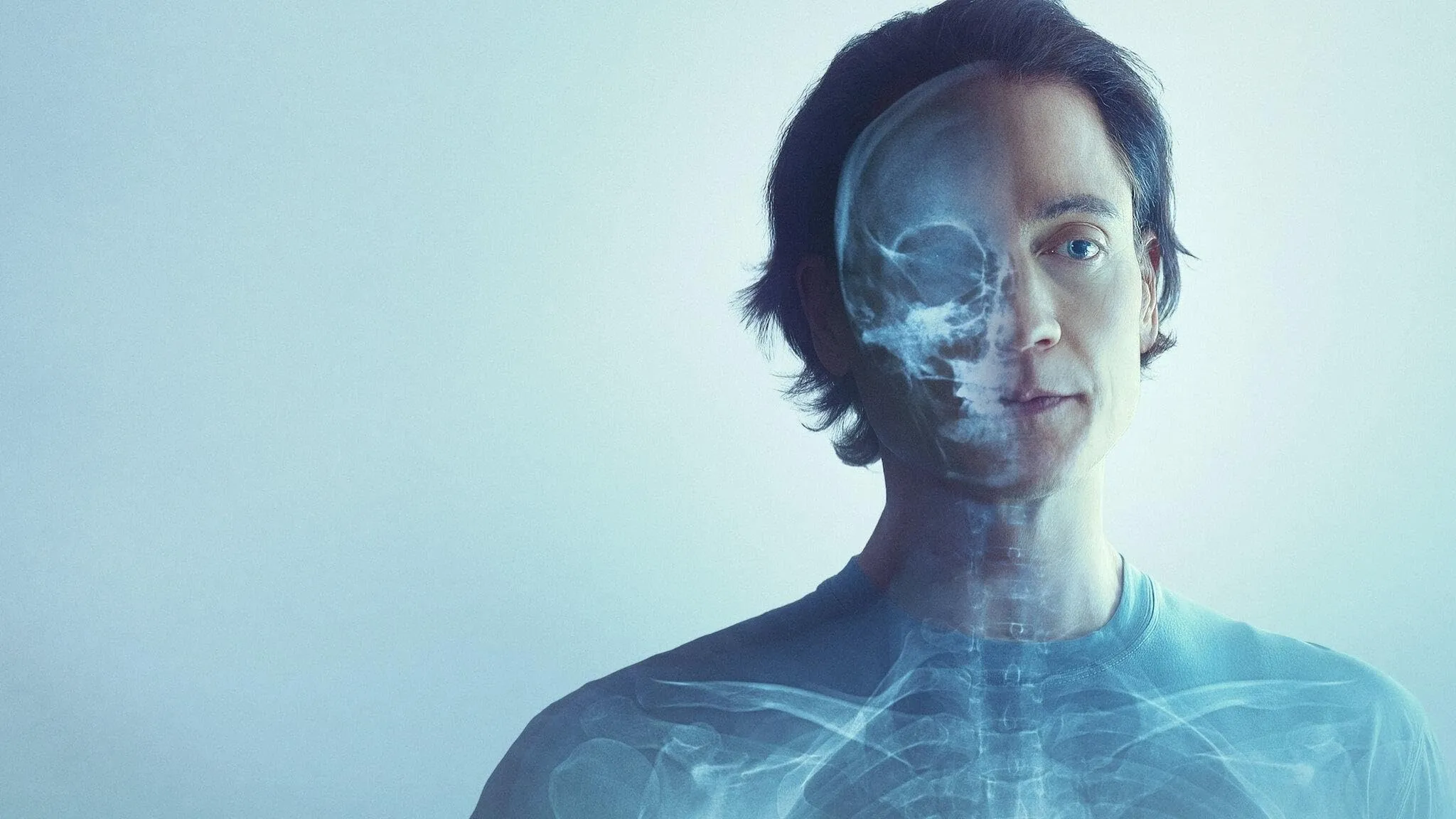The tech millionaire Bryan Johnson is one of the most fascinating and perplexing people today. People admire and doubt his abilities all at the same time. Johnson founded Braintree and led the company to a $800 million sale to PayPal. He is rich, creative, and naturally interested, all typical Silicon Valley success traits. People are interested in him not because of his money but because of his radical quest for immortality, which blurs the lines between health, vanity, and existential questions.
At the heart of this quest is Project Blueprint, a carefully planned schedule that aims to slow down or even stop the march of time. John Son’s mission seeks to redefine the limits of human existence itself, going beyond mere longevity. This project has an annual budget of more than $2 million, making it both a personal and a financial effort. It also reflects a commitment that demands a lot of money and a firm commitment to an algorithmic way of life.
Johnson follows strict rules when it comes to health and exercise. These rules cover everything from limited diets to new, often experimental treatments. This extremely structured method raises important questions about the nature of life: Does pursuing a long life run the risk of taking away from the essence of life? Johnson’s question has no clear answer, just like the state of immortality he seeks.
The Rigorous Rituals of Bryan Johnson: A Life Measured in Metrics
A relentless pursuit of optimal health that verges on obsession, Bryan Johnson Son’s daily life unfolds like a carefully planned performance. He gets up in the sun and starts a fitness plan that would scare off even the most serious gym-goers: a strict vegan diet carefully calculated to give him exactly 2,000 calories daily.
Each meal is more than just food; it’s a carefully planned event to align with his main objective of longevity. He goes to bed at 8:30 p.m. every night and sleeps for exactly 8.34 hours. This shows that he is very committed to his body’s demands, dictating not only his waking hours but also the rhythm of his life.
It’s hard to believe how big Johnson’s routine is. For over 130 pills a day, he takes a wide range of vitamins, some of which are common and some of which are very strange. This huge assortment of drugs is meant to improve every possible biological function, turning his body into a real laboratory for self-experimentation. Each pill contains both traditional vitamins and cutting-edge treatments. Each one is a part of a bigger plan to fight aging.
However, Johnson’s program gets into murkier waters because it experiments. Plasma therapy and gene therapy are two of the most controversial parts. These treatments are on the edge of cutting-edge science and speculative fake medicine. John Johnson exchanges plasma with his son and father to rejuvenate his aging body. This raises serious ethical questions while also strengthening family ties.
These treatments have a strong allure, but there are also serious risks. Some people say that these treatments aren’t always backed up by strong scientific evidence, making them more like passing trends than real steps forward in medicine. The very notion of what it means to pursue health in an age where the boundaries of science are constantly tested is challenged by each step of John Son’s journey, which invites scrutiny.
The Philosophy of Persistence: Johnson’s Quest Against Time
A philosophy that seeks to redefine the very essence of aging is at the heart of Bryan Johnson Son’s daring project. Johnson says that getting older is not a natural decline but a state that can be changed by strictly following rules. His beliefs are based on the idea that the mind often leads people astray because mental wants can get in the way of what the body needs.
He believes that giving in to the mathematical demands of the body is not only a way to live longer but also a way to be free. This radical reinterpretation contends that true health results from prioritizing physiological signals over psychological urges, a position that calls into question common ideas of desire and self-control.
This philosophy permeates John Son’s daily life, dictating everything from his diet to his workout regimens. As if he were a servant to his biological data, every choice is carefully made to align with the demands of his body. This way of thinking has implications for more than just personal health; it also makes us think about the larger cultural story of well-being.
According to detractors, such a philosophy runs the risk of turning the human experience into a set of numbers that must be solved rather than a lived life. This way of thinking is dangerous because it can potentially cut people off from the variety of experiences life offers, turning happiness, spontaneity, and human connection into numbers in a wellness formula. What is given up on the altar of longevity in this never-ending pursuit of perfection remains the question.
Familial Bonds in the Age of Optimization: Johnson and Talmage
A moving story of family connection, most notably Bryan Johnson’s relationship with his son Talmage, lies at the heart of his never-ending quest to fight aging. This relationship develops into a complicated web of shared experiences. Talmage not only takes part in his father’s Project Blueprint, but he also acts as a reflection of the high emotional risks of such an undertaking.
Their bond, which was formed through strict health plans, shows the closeness and stress of their unique situation. A sense of friendship, tinged with the weight of expectation, develops as they work together and engage in the experimental plasma exchanges that have sparked both fascination and ire.
Clearly, Johnson wants to protect the youth that Talmage represents in many ways, but their friendship raises troubling questions about how they are connected. Does Talmage’s participation run the risk of turning into an extension of John Son’s obsessive quest for immortality, or is it a sincere investigation of family love?
The implications of Johnson’s pursuits go far beyond his bond with Talmage’s age and significantly impact his relationships with his other kids. His separation from two of his three children is a stark reminder of how his single-minded focus on living a long life has hurt his relationships with others. John Son has unintentionally built barriers that keep him apart from the very family he seeks to uplift in his quest to transcend human limits.
There is a deep resonance in the conflict between his radical way of life and his desire to connect with his family. Unquestionably, Johnson’s journey is ambitious, but it often seems like he puts his quest ahead of building real, complex relationships. This raises important questions about the adjustments people make in the name of self-improvement: when does the pursuit of personal goals become more important than the need for family bonds? In the quest for eternal life, Johnson’s story shows how fragile human relationships are and how complicated love and ambition can be.
The Intersection of Science and Ethics: Navigating Johnson’s Experimentation
The scientific community reacts to Bryan John Son’s ambitious Project Blueprint with fascination, doubt, and worry. Several well-known medical workers and researchers are interviewed, and a nuanced critique of Johnson’s methods is given. This shows the gap between aspiration and empirical validation. While some people are interested in the potential insights his self-experimentation might produce, the general feeling is profound unease. Critics point out the risks of combining many different experimental treatments without strict clinical oversight.
They say that Johnson’s method may be more showy than scientific. Because there haven’t been controlled studies to back up any claims of efficacy or safety, the notion of a wealthy person going on such an uncontrolled journey raises red flags. The very idea behind his plan veers close to the boundaries of what constitutes responsible medical practice, raising questions about the veracity of such extreme health pursuits.
Beyond Johnson’s own choice, Johnson’s self-experimentation has moral implications that should be looked at by society as a whole. There is a troubling story behind the commercialization of health, especially regarding wealth, where the rich can afford to be guinea pigs in a quest for long life. What happens when only the rich can afford to pioneer the frontiers of medical experimentation?
This dynamic raises important questions about equity in healthcare access. As health and wellness become more like commodities and are sold for profit instead of scientific inquiry, there is potential abuse. Furthermore, Johnson’s business is an example of a worrying trend in which personal branding and business zeal mix with medical pursuits, turning health into a show instead of a goal for everyone’s well-being.
The question of balancing the allure of innovation with the moral duty to protect human dignity and health continues as society grapples with the implications of such extreme health regimens.
Crafting a Narrative: Chris Smith’s Directorial Vision
Chris Smith’s direction in Don’t Die: The Man Who Wants to Live Forever skillfully handles the complicated relationship between a personal story and larger ideas about society. By focusing the film on Bryan Johnson’s unique quest for immortality, Smith creates a personal portrait that draws viewers into the maze of Johnson’s life while also putting his story in the context of bigger conversations about health, wealth, and the human condition.
This dual focus makes the documentary better by bringing attention to the strange aspects of John Son’s routine and encouraging viewers to think critically about the implications of such pursuits in a society becoming increasingly obsessed with living longer.
The film’s pace is perfectly calculated, allowing emotional reminiscences to break up the story. Smith mixes serious themes with lighter ones, giving readers short bursts of fun to take their minds off the serious topics. These lighter moments not only keep the audience interested but also help to humanize John Son by showing the sensitive issues that lie beneath his strange appearance.
Smith strikes a delicate balance between ambition and vulnerability in this story, making viewers think about the costs of a life lived in the never-ending pursuit of perfection.
The Paradox of Immortality: Reflections on the Human Experience
The relentless pursuit of immortality by Bryan Johnson raises important questions about the nature of existence. One must consider the balance between extending life and fully enjoying the present in a world that is increasingly captivated by the allure of longevity.
What does it mean to live if the quest for more time dominates every moment? Johnson’s journey is a stark warning that trying to stay young forever may make it harder to see how rich life is even though it’s short.
People are still trying to figure out how to balance these ideas: can we enjoy the present while also working toward the future?
The Review
Don’t Die: The Man Who Wants to Live Forever
Bryan Johnson's brave quest for immortality is explored in detail in Don't Die: The Man Who Wants to Live Forever, which successfully combines personal stories with larger societal themes. Chris Smith's direction captures the tension between ambition and human connection, making viewers think about the moral implications of these pursuits. The film raises important questions about the price of staying young forever while inspiring admiration for its subject's commitment. Overall, it's a documentary that makes you think and question the value of life itself.
PROS
- Engaging personal narrative that humanizes the subject.
- Thought-provoking exploration of ethical implications surrounding health and longevity.
- Skillful direction by Chris Smith, balancing humor and emotional depth.
- Visually captivating cinematography that enhances the storytelling.
- Strong commentary on societal obsessions with youth and perfection.
CONS
- Some viewers may find Johnson's methods extreme or unrelatable.
- The film may lack rigorous scientific analysis, focusing more on personal experience.
- Pacing may feel uneven in parts, affecting overall engagement.





















































